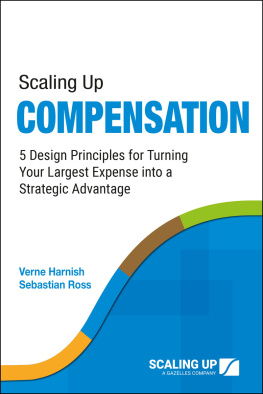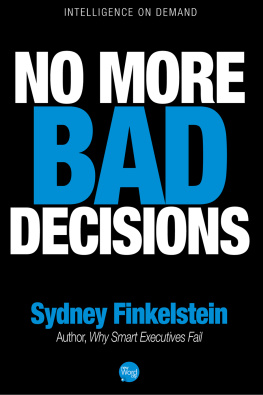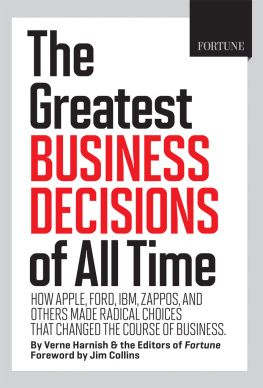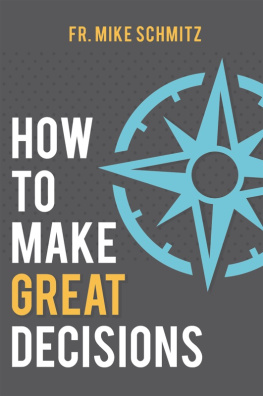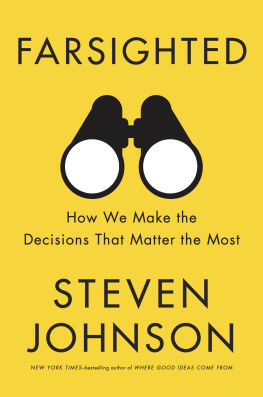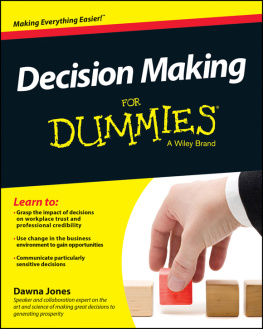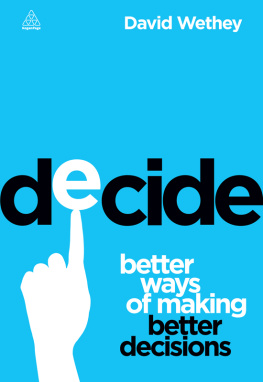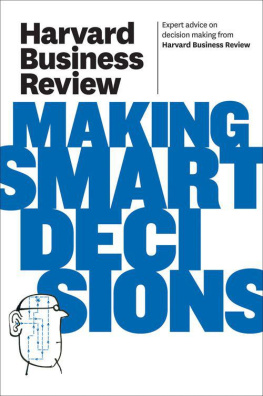Verne Harnish - The Greatest Business Decisions of All Time: How Apple, Ford, IBM, Zappos, and others made radical choices that changed the course of business
Here you can read online Verne Harnish - The Greatest Business Decisions of All Time: How Apple, Ford, IBM, Zappos, and others made radical choices that changed the course of business full text of the book (entire story) in english for free. Download pdf and epub, get meaning, cover and reviews about this ebook. year: 2012, publisher: Time Home Entertainment, genre: Business. Description of the work, (preface) as well as reviews are available. Best literature library LitArk.com created for fans of good reading and offers a wide selection of genres:
Romance novel
Science fiction
Adventure
Detective
Science
History
Home and family
Prose
Art
Politics
Computer
Non-fiction
Religion
Business
Children
Humor
Choose a favorite category and find really read worthwhile books. Enjoy immersion in the world of imagination, feel the emotions of the characters or learn something new for yourself, make an fascinating discovery.

- Book:The Greatest Business Decisions of All Time: How Apple, Ford, IBM, Zappos, and others made radical choices that changed the course of business
- Author:
- Publisher:Time Home Entertainment
- Genre:
- Year:2012
- Rating:5 / 5
- Favourites:Add to favourites
- Your mark:
The Greatest Business Decisions of All Time: How Apple, Ford, IBM, Zappos, and others made radical choices that changed the course of business: summary, description and annotation
We offer to read an annotation, description, summary or preface (depends on what the author of the book "The Greatest Business Decisions of All Time: How Apple, Ford, IBM, Zappos, and others made radical choices that changed the course of business" wrote himself). If you haven't found the necessary information about the book — write in the comments, we will try to find it.
Here management consultant Verne Harnish, the CEO of Gazelles, and Fortunes editors provide the background stories behind the greatest business decisions of all time. In this fully original book, youll get a glimpse into the thought processes leading up to these groundbreaking moments and will learn how the decisions have shaped the thinking of todays top leaders. The book also contains an insightful foreword by management guru Jim Collins, the author of Built To Last and Good To Great, which explains the importance of decision making in creating a successful company.
ADVANCED PRAISE FOR FORTUNE Greatest Business Decisions
CEOs make thousands of decisions every year, but only a few of them have dramatic impact on a companys brand, performance, and culture. IBM knows something about those types of big bets. This book is a concise look at some of those big decisions and the C-suite moves that separated winners from the competition. - Samuel J. Palmisano, Chairman and former CEO, IBM
A great resouce! Learning about how others make great decisions can help you make great decisions! A fascinating, practical history that can change the way that you make decisions. Required reading for decison-makers- at all levels! -Marshall Goldsmith, named the No. 1 Leadership Thinker in the World by Thinkers50, is a consultant and author of the New York Times bestsellers MOJO and What Got You Here Wont Get You There.
When you look at the best business decisions that have been made throughout the years, a clear pattern emerges: The best decisions require not only great insight, but courage and commitment as well. The greatest business leaders are the ones who focus their energy not solely on profits, but on improving peoples lives. These important lessons from our past, which this book brings to light, are more relevant than ever today. -Bill Ford, Executive Chairman, Ford Motor
Verne Harnish: author's other books
Who wrote The Greatest Business Decisions of All Time: How Apple, Ford, IBM, Zappos, and others made radical choices that changed the course of business? Find out the surname, the name of the author of the book and a list of all author's works by series.

